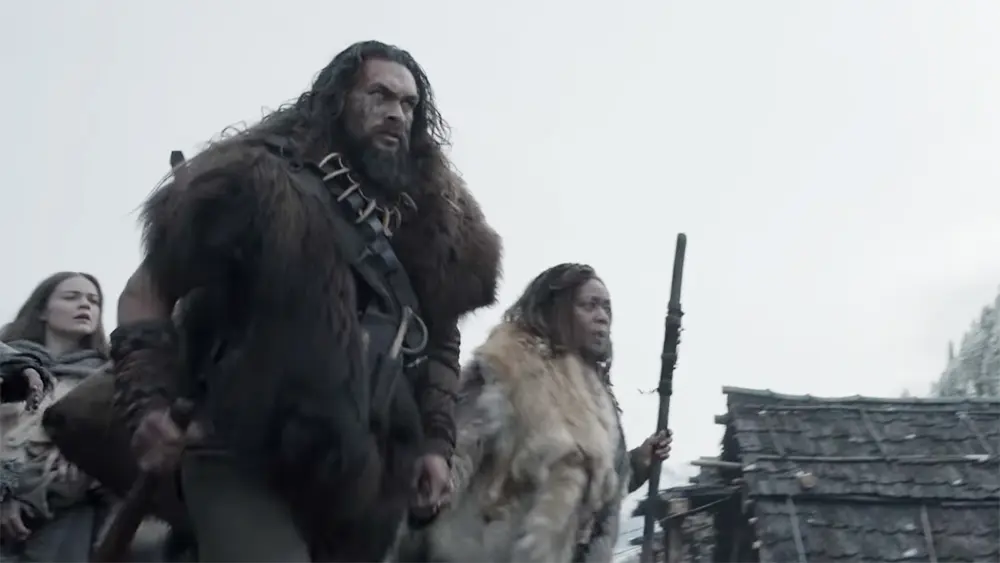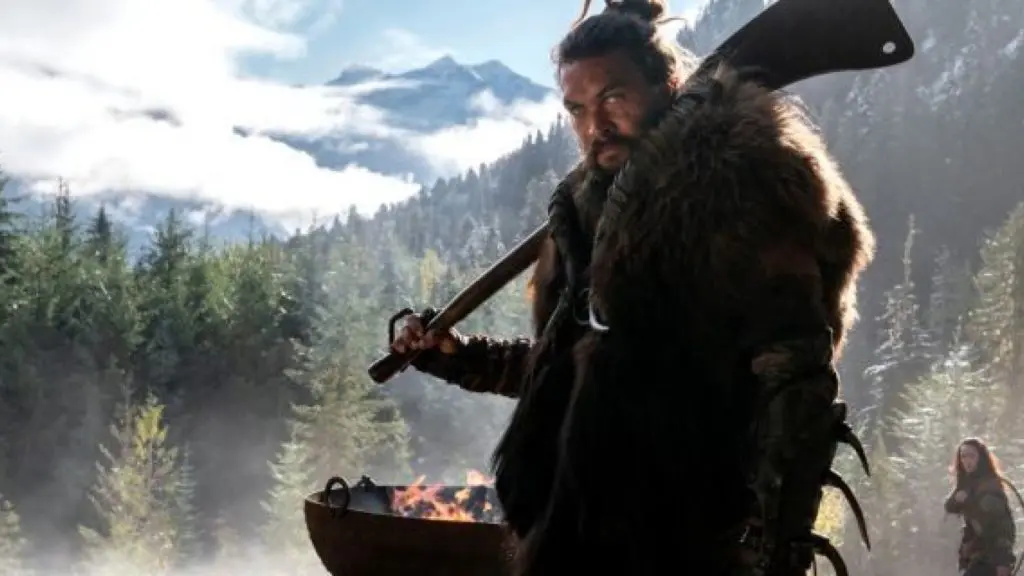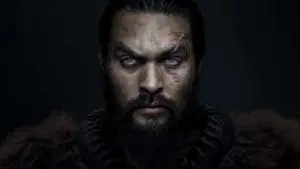Summary
A messy and thoroughly ridiculous premise gets by with some effective tension, action, and intrigue, but See doesn’t promise much improvement in its first three episodes.
This review is based on the first three episodes of See, which debuted on Apple TV+ November 1st, 2019. We will be covering the show weekly from here on out.
See (Apple TV+) is a big, expensive-looking show with a big, compelling lead in Jason Momoa. But even that post-Aquaman star power isn’t enough to hide how uncomfortable he clearly feels chewing through such aggressively dopey fantasy dialogue. It’s a problem. The show’s premiere episode, “Godflame”, is admittedly excellent; a tense and brutal introduction to a world of welcome strangeness. But its second and third outings, “Message in a Bottle” and “Fresh Blood”, allow the ambitious worldbuilding to run away with itself, and the ridiculousness baked into the premise becomes too prominent to ignore.
That premise is this: After some kind of outbreak in the 21st Century, humanity was whittled down to a population of about two million, and all the survivors emerged blind. See picks up several generations into a post-apocalyptic future in which the notion of sight is a myth; those who speak of it are considered heretics. Momoa plays Baba Voss, the hulking leader of an isolated tribe — Alfre Woodard plays its knowing soothsayer — who, thanks to the encroachment of so-called Witchfinders working for a queen (Sylvia Hoeks) who communes with some unspecified Gods via masturbation, have to rehome themselves according to the enigmatic guidance of a missing sighted heretic who fathered two children with Baba Voss’s missus. Over the course of the first three episodes, those kids are born, grow from babies into pre-teens, and become the fascination of Queen Kane and her nutcase devotees for inheriting their absentee father’s gift of sight.

Phew. Did I mention this show is weird? Well, it’s weird. But it’s also remarkably uninteresting for something of such narrative and financial ambition; there are lots and lots of forests and caves, but precious few fantastical flourishes, and scarcely any indication that the show’s future was built in the ruins of our present. After “Godflame”, the pace slows down enough that you really start to notice how poorly fleshed-out these characters are. Then it slows down a bit more. Momoa shoulders a lot of weight with his tough-guy Man 2.0 stoicism routine, but whenever there aren’t action duties to fulfill he’s misused in his attempts at protective surrogate parenthood. The action, for what it’s worth, is surprisingly well-choreographed but needlessly vicious, sometimes in a way that feels a bit childish, and almost always in a way that makes no contextual sense. And that is the big problem with See, one that I’m not sure it’ll recover from.
In short: What is ostensibly a series about blindness only rarely seems to remember that any of its characters are blind. And it almost never remembers that they apparently grew up so far removed from the concept of sight as an everyday thing that it’s considered myth. This manifests in a few ways. See does a really good job of remembering the basics, and there’s a lot of pathfinding clicking, messages communicated via knotted lengths of rope, and an uncomfortable closeness in both dialogue and action that really lends something to the show. But lots of details make considerably less than no sense if you think about them for more than a second. Voss offing his adversaries in big, showy spectacles doesn’t track if there’s nobody around to witness and be intimidated by it. Queen Kane does the same thing to cow her followers. Eventually, the twins are introduced to books thanks to a care package left behind by their father, and I’m reminded of that old idea that even if a lion could speak, we wouldn’t be able to understand it. There is simply no way these two would be able to comprehend To Kill A Mockingbird or 1984 — even if they could learn the words, which they almost certainly couldn’t if tutored entirely by people several generations removed from their own vision, they’d have no contextual understanding of race-relations in Great Depression Alabama or a futuristic totalitarian surveillance state.
This seems like nitpicking, and I suppose in a way it is, but there’s so much time to think about this stuff — and so many instances of newer, weirder quibbles to pick up on — that you can’t help but dwell on how undercooked the concept seems to be. With See, Apple TV+ could have had a star-driven fantasy property right out of the gate, but what they’ve ended up with mostly seems content just to fumble around.




